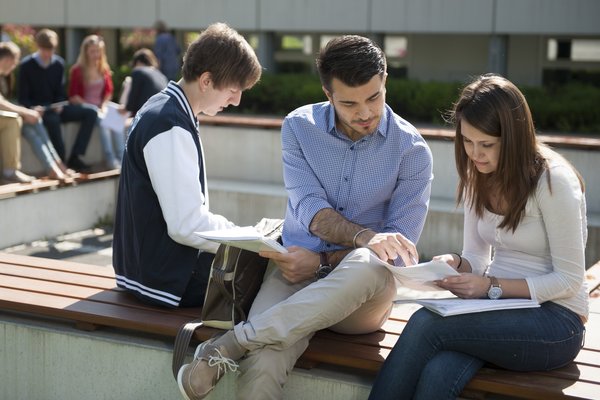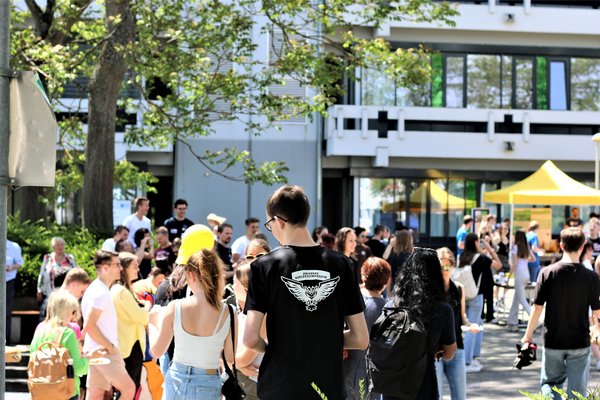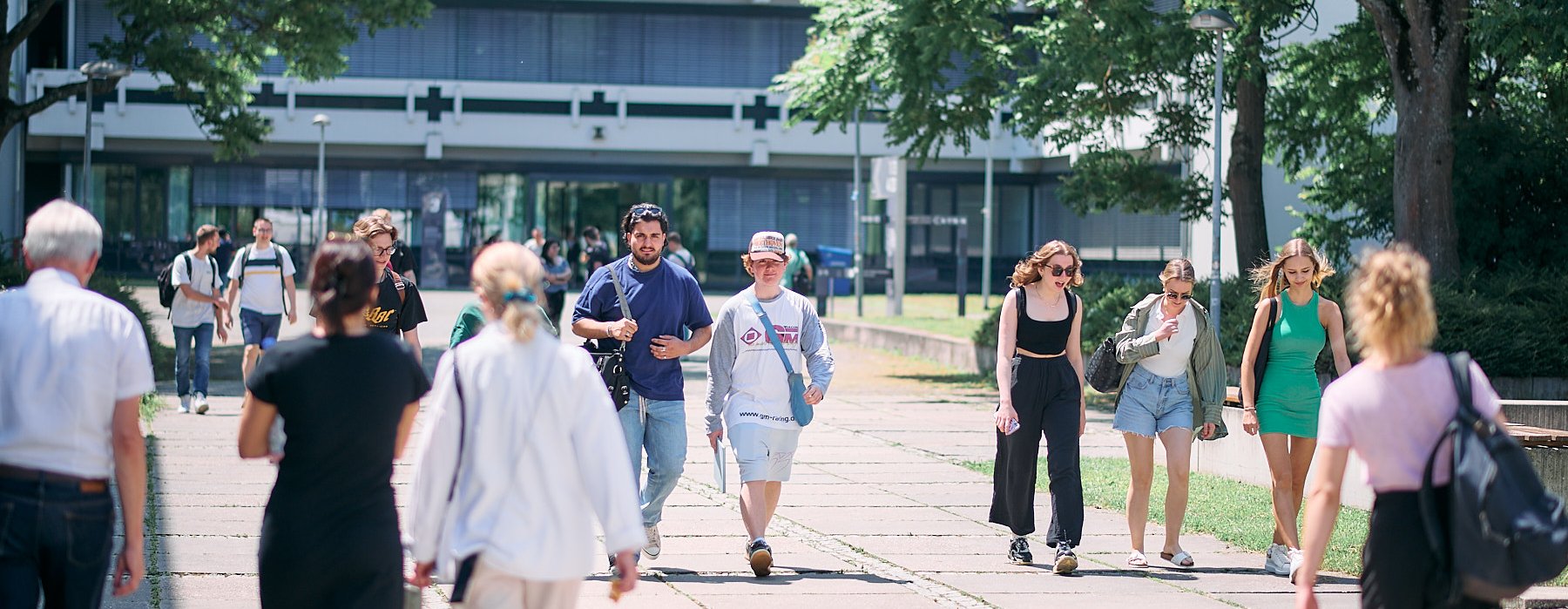
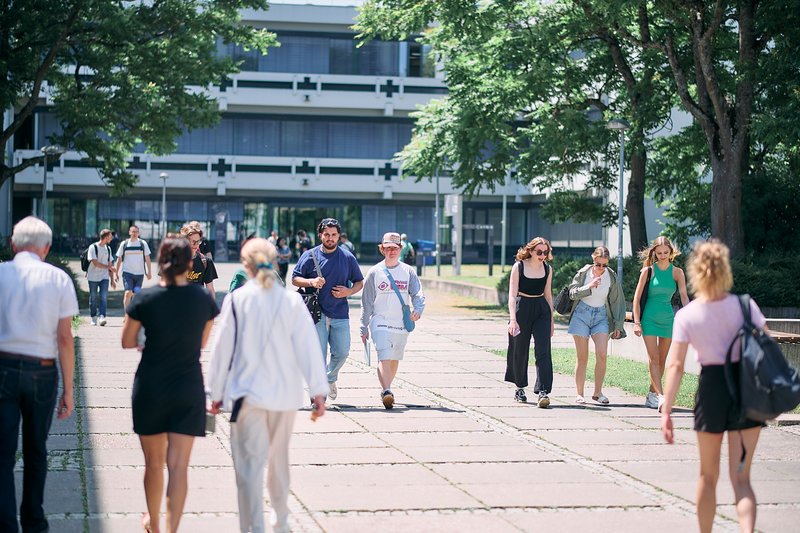
Study Orientation
Are you undecided about if and what you would like to study? Do you need help in choosing a degree programme, or do you have questions about our formal requirements and the application process? We offer a wide range of orientation services to help you find the right course of study.
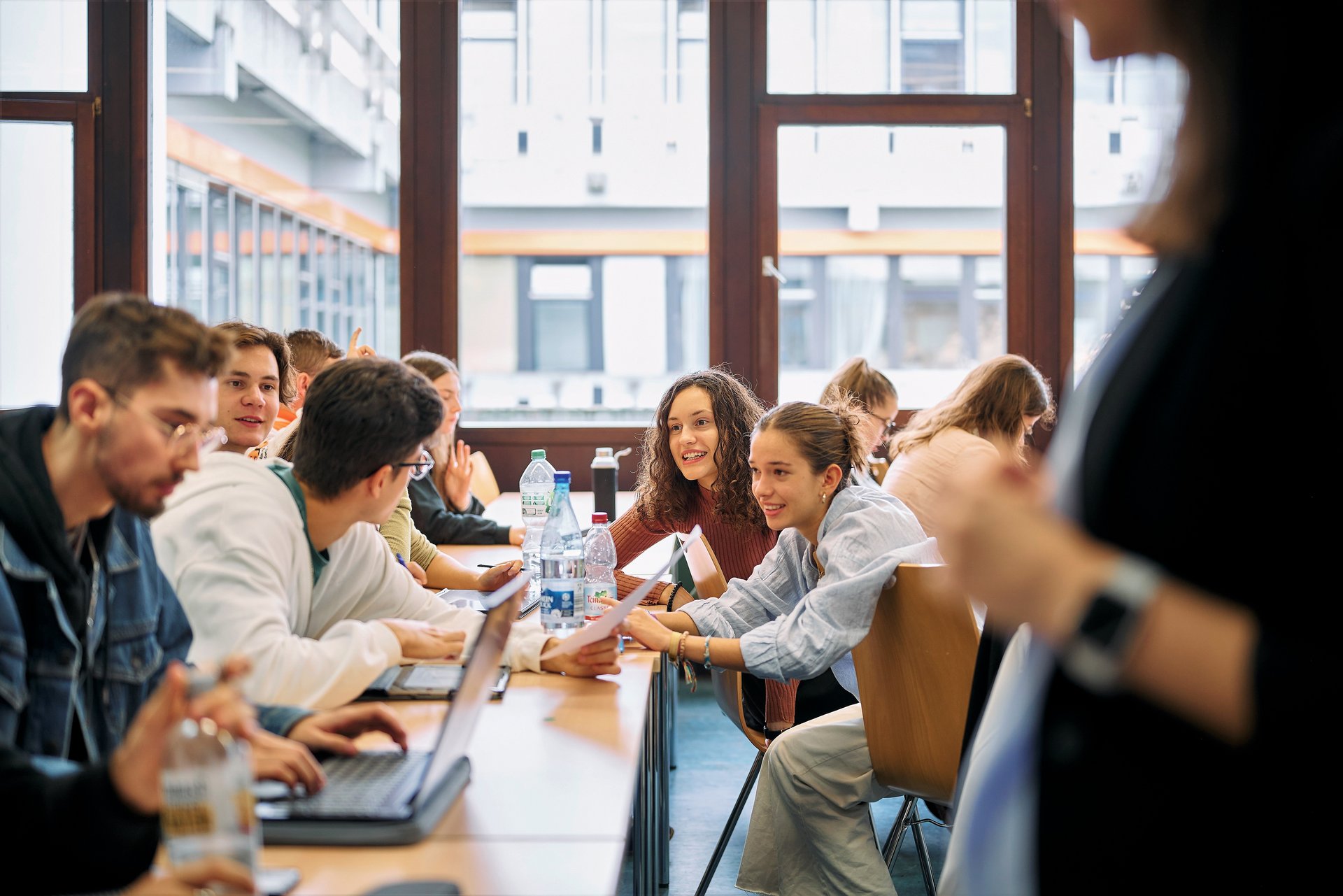
Should I really do it?
There are many good reasons for studying, whether you plan to work in a certain profession later on, aspire to a management position or want to improve your chances of promotion within your company. Find out what opportunities a degree can offer you. In addition to our Central Student Advisory Service (ZSB), the following websites also provide assistance:

What works best for me?
The German higher education landscape is diverse and admittedly somewhat confusing. Which type of higher education institution suits you depends on many factors, e.g. your (professional) interests, your qualifications and whether you prefer more practical or research-oriented learning. The most important characteristics of universities and other institutions of higher education are summarised for you here.
Tips for decision-making
The decision to study is often not easy. Which degree programme suits me? What are my strengths? Which subjects do I really enjoy? What is important to me? And how do I actually go about it? There are many ways to approach these questions. So things do not get too complicated, here are a few tips and ideas to get the ball rolling.
Which topics do you find interesting? Which questions preoccupy you? What areas would you like to be involved in? Write down what you enjoy and which topics, questions and problems appeal to you.
- Would you rather be an all-rounder or a specialist?
- What does your ideal workplace look like? Office, laboratory or outdoors?
- Corporate group or small family business - where do you see yourself?
- Find out what matters to you.
Instead of committing to a specific profession, try to outline a field of work that fits the content. Here, you can research which occupations may result from this later on:
What are you really good at? What distinguishes you from others? How do you prefer to work? Do you find certain subjects, topics or approaches easier than others? Write down your skills. Does your self-assessment match with that of your family and friends? It can be worthwhile to ask and compare - often an external view provides new perspectives on your skills and abilities.
Various tests can also help with the assessment:
Have you identified your strengths, interests and priorities? In that case, everything is clear and you should already have one or more fields of study in mind. Now it is time to find out which degree programme within this selection suits you best. To do this, you should get informed about the following:
- Study content: Do the main topics of the degree programme appeal to you? Can you imagine dealing with them for the next 3-4 years?
- Course of study: How many semesters can you expect? Do you need or want to do an internship or semester abroad?
- Prerequisites: Do you have the necessary qualifications for your programme of choice? Perhaps you need a pre-study internship or special language skills?
- Application deadline: When is the application deadline? When does the programme start?
You can find all relevant information on the degree programme, including course content and the course of study, in the relevant module handbook. The module handbooks for our study programmes are available for download here or on the websites of the five schools.

